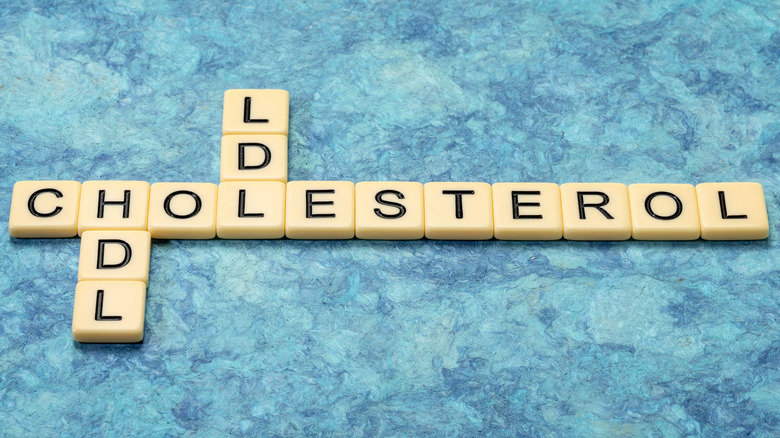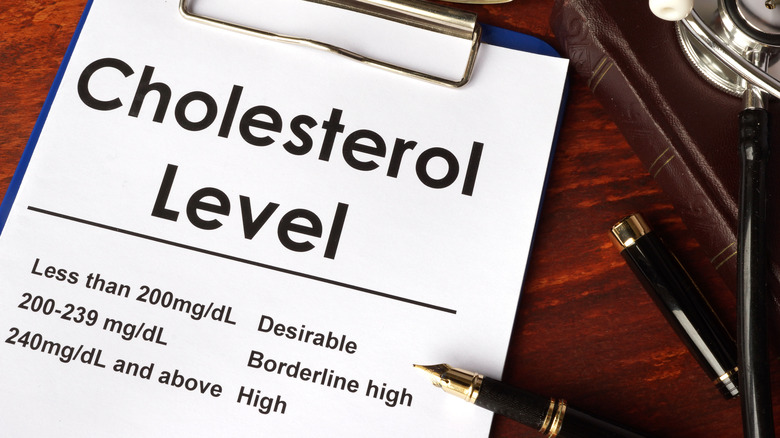Are There Any Physical Signs Of High Cholesterol?
Cholesterol is a substance in your blood that helps build healthy cells throughout your body, but there can always be too much of a good thing. Having high levels of cholesterol can make you more susceptible to heart disease, which is the world's leading killer. This is because if you have high cholesterol, fatty deposits (plaques) may develop and grow within your blood vessels, potentially interfering with blood flow (per the Mayo Clinic). More rarely, these plaques can burst and cause a clot that may prevent blood from reaching your brain or heart, leading to a stroke or heart attack.
Nobody wants to have high cholesterol, but plenty of people do. According to the U.S. Centers for Disease Control and Prevention (CDC), about 12% of Americans aged 20 and older had high cholesterol between 2015-2018. However, only 54.5% of Americans who could benefit from cholesterol medicine are taking it. Many people with high cholesterol don't even realize they have it. How do you make sure you're not one of those people?
Here's how to determine if you have high cholesterol
If you wait for symptoms to clue you in on whether you have high cholesterol, you will never find out if you have it. This is because high cholesterol is not associated with any physical symptoms (per CDC).
If you want to keep tabs on your cholesterol levels, you need to undergo blood testing regularly. Men between the ages of 45-65 and women between the ages of 55-65 should have their cholesterol levels checked every 1-2 years, according to the U.S. National Library of Medicine. If you are a healthy young adult, you should be tested every 5 years. The CDC notes that people in high-risk groups should get their cholesterol levels checked more frequently. These people include those with diabetes, heart disease, or a family history of high cholesterol levels. You may be prescribed a cholesterol-lowering medication to help you manage the condition.

